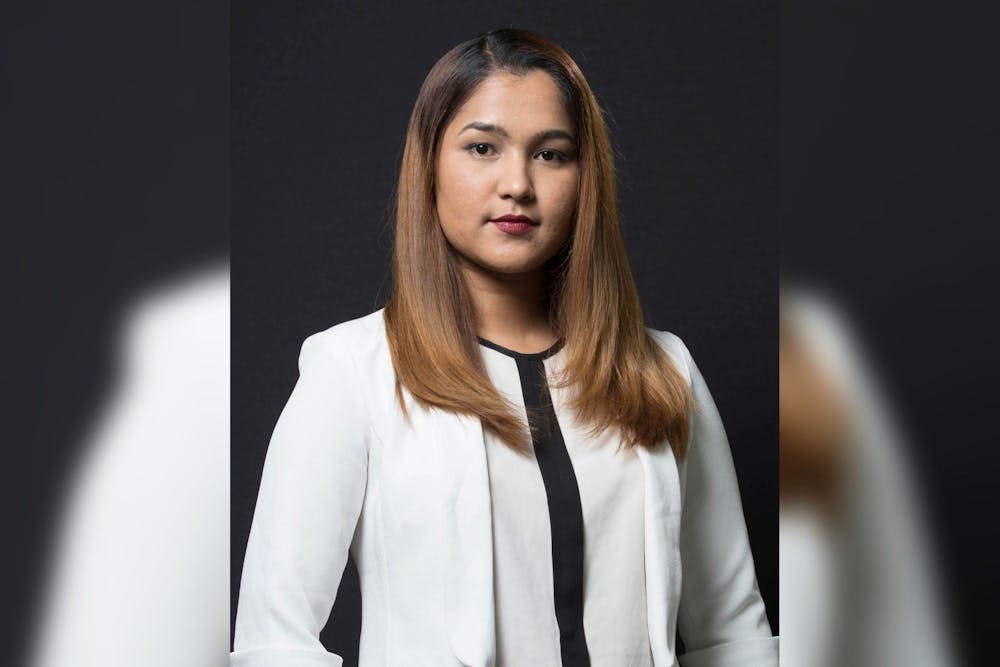Former political prisoner and human rights activist Wai Wai Nu discussed the unique impacts of the COVID-19 pandemic on health, work, and information for women refugees.
Perry World House hosted the virtual event, entitled "COVID-Induced Crises and Refugee Women's Livelihoods," on April 16. Nu, the founder and executive director of Women Peace Network in Myanmar, shared her experiences working with women in refugee camps and camps for internally displaced people across Asia. She also identified how displaced women have overcome pandemic-related challenges, and offered recommendations for improving refugee and internally displaced women's access to dignified work, health care, and housing.
Nu said that the three main ways the pandemic has disproportionately impacted internally displaced women are through job loss, decreased access to women-friendly spaces, and an increase in domestic violence.
“The COVID-19 pandemic does not discriminate in terms of infections and [COVID-19] itself does not discriminate people," Nu said during the event. "However, the impact of [COVID-19] has disproportionately affected refugees, internally displaced people and even the most vulnerable groups among them. People [with disabilities], elderly [people], and women are uniquely affected by COVID-19.”
Nu said it is particularly difficult for women who lose their jobs to find work again. She added that unlike American citizens, refugee women received no stimulus or monetary support during the pandemic.
Women in refugee camps are often survivors of armed conflicts, or in the case of Bangladesh, survivors of genocide, Nu said. Prior to the pandemic, groups like United Nations Women established women-friendly spaces in camps for internally displaced people, which created a social community and a place to communicate and share experiences; this has since stopped because the spaces were not deemed "essential."
Nu cited data from UN Women, which found that domestic violence in refugee camps has increased significantly during the pandemic.
Nu also highlighted unique impacts in various countries. In the Rakhine State, Myanmar has limited internet access, which perpetuates the lack of available information, and limited humanitarian aid, which decreases access to maternal and reproductive health care. In Bangladesh, many internally displaced women live in dire conditions and also lack technology to access information, which is worsened by the government limitations on internet access, Nu said.
RELATED:
Linguist Noam Chomsky talks power of grassroots activism at student-organized event
TEDxPenn hosts first-ever virtual event, featuring speakers from academia to the NFL
In Bangladesh, Malaysia, and Thailand, densely populated camps were seen as threats to the spread of COVID-19, sparking intense hate campaigns. Nu said that patriarchal societies, poor living conditions, misinformation, language barriers, and decreased access to health care further exacerbated the challenges of the pandemic.
Nu added that long-term research of the impact of COVID-19 on internally displaced women, mental health support, funding for local women’s groups, increased support for gender-based violence survivors, supporting women’s micro-businesses, and changing infrastructure could produce better conditions in the future.
For those looking to support refugees, Nu said people can raise funds for COVID-19 needs and volunteer or join organizations that support refugees, such as the Women’s Peace Network.
“COVID-19 is a time to reflect and reset in a way that would bring more equity to the world and our society, especially in societies that are more conservative as a result of conflict or many other factors,” Nu said. “It is a chance for the world to build gender equity and equality by making more access in women-friendly programs and institutions, as well as providing more funding and support.”









